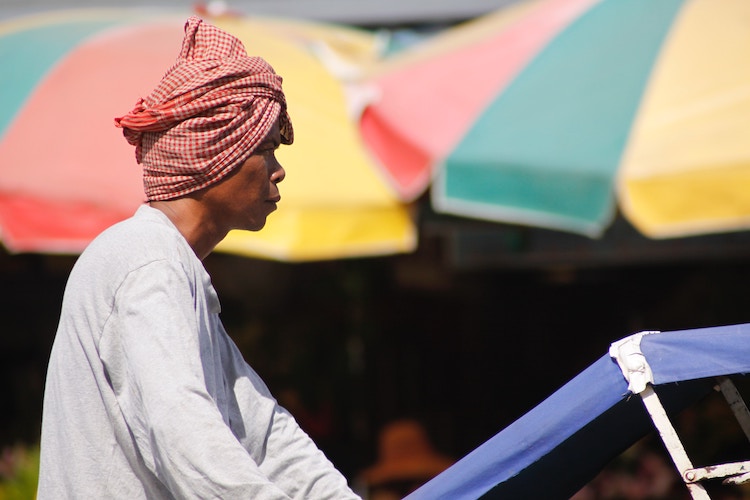Greetings, Agents of Impact!
Signals: Ahead of the Curve
Climate finance gains momentum at international development banks. The world’s largest multilateral bank will no longer fund fossil fuel projects post-2022. The European Investment Bank is on a new strategy to unlock $1.1 trillion for climate finance and sustainable investment over the next decade. “We will stop financing fossil fuels, and we will launch the most ambitious climate investment strategy of any public financial institution anywhere,” said the EIB’s Werner Hoyer. Several days earlier, the African Development Bank scrapped plans to finance a coal plant in Kenya and indicated it is not planning to fund new coal plants, which are at risk of becoming “stranded assets,” bank president Akinwumi Adesina told Reuters at a conference in South Africa.
- Bucking the trend. Climate financing from the six multilateral development banks grew 22% last year even as global climate finance fell (see, “Investor wake-up call: Global climate financing fell 11% last year”). The African Development Bank, the Asian Development Bank, the European Bank for Reconstruction and Development, the European Investment Bank, the Inter-American Development Bank Group and the World Bank Group invested $43.1 billion in 2018, a 60% increase since the 2015 Paris climate agreement. The World Bank and European Investment Bank already have surpassed their 2020 targets to scale up climate finance to 25-40% of their loan portfolios.
- Falling short. Gas infrastructure built through 2022 with financing from the European Investment Bank could operate through mid-century, Greenpeace warns. In Small Steps Are Not Enough, Christian Aid criticizes the banks for growing green-energy lending too slowly and continuing to fund fossil fuels (see “Is the carbon bubble about to burst?”).
- Distribution. About $30 billion, or 70% of 2018 climate financing from the multilateral banks, went to climate mitigation strategies. Financing for climate adaptation grew to $13 billion. Projects in sub-Saharan Africa, Latin America and the Caribbean, and South Asia received the most investments by region. Catalytic? Each dollar of climate finance provided by multilateral development banks mobilized just 62 cents from private sources.
- Share this post.
Dealflow: Follow the Money
Stone Family Foundation backs $10 million sanitation impact bond in Cambodia. Cambodia’s first development impact bond aims to improve sanitation for the poorest and most marginalized Cambodian households. U.K.-based Stone Family Foundation is providing an undisclosed amount of upfront capital for the four-year project, which aims to eliminate open defecation in 1,600 rural villages. If successful, the foundation will be repaid, with a small return, by USAID. iDE, a nonprofit organization that tests market-based solutions to poverty, is seeking to boost in-home latrines to 85% and to reduce the use of shared latrines to 15%. Stone Family Foundation, established by John Stone and his wife Vanessa, supports market-based clean water and sanitation solutions in emerging markets. Check it out.
Australia’s Tenacious Ventures raises A$16 million for sustainable ag fund. The founders of agtech startup consulting firm AgThentic launched Tenacious Ventures to fill the agtech capital gap in Australia, which saw only $29 million of the $16.9 billion in global agtech deal activity in 2018. The fund has raised A$8 million ($5.5 million) each from Clean Energy Finance Corp., Australia’s government-owned green bank, and Grok Ventures, the venture firm started by the billionaire founder of software company Atlassian, Mike Cannon-Brookes. The fund aims to raise A$30 million ($20.5 million) in total to invest in high-impact solutions for farmers that cut waste and boost agricultural supply chain efficiency. Dig in.
ResponsAbility invests in India’s Wingreens Farms. Gurgaon-based food products company Wingreens employs 300 underprivileged women. The funding will help the company hire more women and expand distribution to 10,000 general stores in 200 cities.
Ethical meat startup Crowd Cow raises $15 million. A group of undisclosed investors backed the Seattle-based meat marketplace, which promotes sustainable sourcing and consumption by sending customers their orders only when an entire animal has been purchased.
Agents of Impact: Follow the Talent
BBC Global News CEO Jim Egan joins the board at Media Development Investment Fund… Big Society Capital is looking for an investment director in London… Prime Coalition is hiring for the PRIME Impact Fund in Cambridge, Mass.
Thank you for reading.
– Nov. 20, 2019











